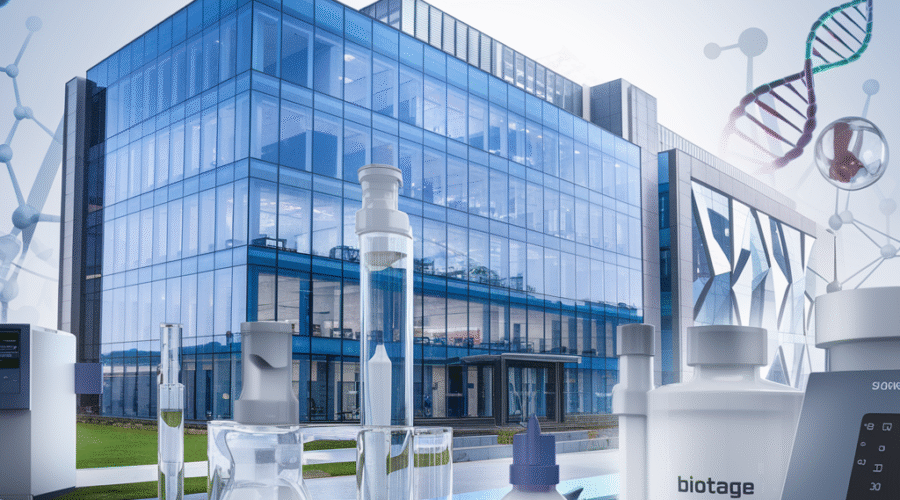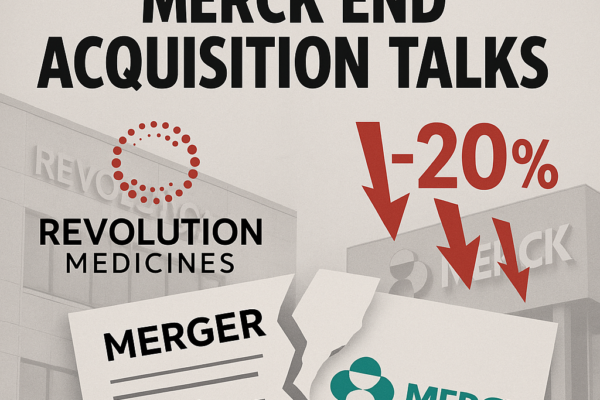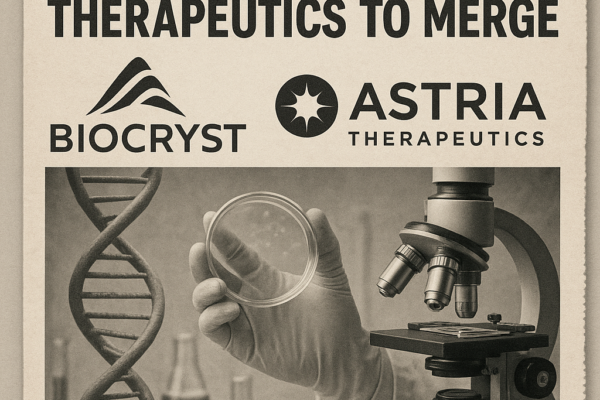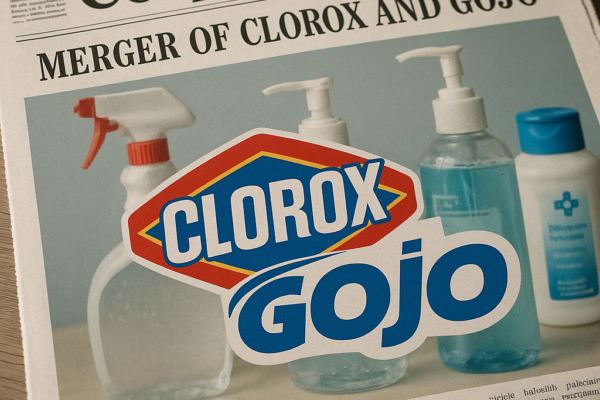In a move signaling private equity’s growing appetite for life sciences infrastructure, KKR & Co. launched a $1.2 billion cash offer for Swedish separations technology leader Biotage AB on April 22, 2025. The 145 SEK per share bid represents a 60.1% premium to Biotage’s pre-announcement price, valuing the company at 11.61 billion SEK ($1.22 billion)[1][4][6]. With unanimous board endorsement and 36% shareholder pre-commitments, the deal underscores KKR’s conviction in Biotage’s role as an enabler of next-generation drug discovery and environmental testing. However, the transaction’s success hinges on achieving a 90% acceptance threshold and navigating cross-border regulatory approvals—a litmus test for PE’s ability to unlock value in specialized scientific tooling markets.
Strategic Rationale: Why Biotage Fits KKR’s Life Sciences Playbook
The Separations Technology Imperative
Biotage’s expertise in purification and sample preparation positions it at the critical juncture of pharmaceutical R&D efficiency. With 70% of new drug candidates being biologics requiring advanced purification[5], KKR recognizes the company’s Isolera™ and PeptiPEC platforms as essential infrastructure for reducing clinical trial timelines. The acquisition aligns with KKR’s Gamma Biosciences platform, which already holds a 16.98% Biotage stake, creating vertical integration opportunities in bioprocessing equipment[1][7].
Public-to-Private Transition Calculus
KKR’s proposal to take Biotage private reflects a strategic pivot away from quarterly earnings pressures. As KKR partner Kugan Sathiyanandarajah noted, “This strategic development is better done in a private setting while expanding into new product areas through M&A”[1][7]. The move enables reinvestment of Biotage’s 40% gross margins into R&D without public market scrutiny, mirroring similar PE plays in lab equipment sectors[2][5].
Financial Architecture and Shareholder Dynamics
Premium Analysis and Valuation Metrics
The 145 SEK offer price represents a 60.1% premium to Biotage’s April 17 close, exceeding one-month and three-month volume-weighted averages by 49.7% and 32.4% respectively[2][6]. At 12.4x trailing EBITDA versus the industry median of 9.8x, KKR’s valuation acknowledges Biotage’s positioning in high-growth niches like PFAS water testing and peptide synthesis[5][6]. The deal structure, fully financed through KKR Funds’ equity and affiliate debt, eliminates financing contingency risks[2][4].
Shareholder Coalitions and Acceptance Thresholds
With Gamma Biosciences (16.98%) and institutional investors Carnegie Fonder, SEB Asset Management, and Coeli (19.03%) pre-committed, KKR starts with 36% acceptance[6]. Achieving the 90% threshold requires convincing Biotage’s fragmented base of 2,000+ shareholders, including retail investors attracted by the stock’s 78% run-up since 2023[2][5]. The board’s fairness opinion from Grant Thornton and emphasis on “certainty of value” in volatile markets could prove persuasive[4][6].
Biotage’s Technological Edge and Market Positioning
Core Competencies Driving Growth
Biotage’s 2023 revenue growth of 12% to 1.5 billion SEK stems from leadership in three verticals: drug discovery (48% of sales), environmental testing (31%), and diagnostics (21%)[5]. The company’s recent launch of automated scale-up purification systems addresses pharmaceutical manufacturers’ needs to reduce monoclonal antibody production costs by up to 40%[5][7].
ESG Alignment as Value Driver
Ranking in the top 5.1% of peers for ESG performance, Biotage’s technologies enable 30-50% reductions in solvent waste during chemical synthesis—a key selling point as regulators mandate green chemistry practices[5]. KKR likely views this alignment with EU Sustainable Products Initiative regulations as a durable competitive advantage.
Execution Risks and Regulatory Landscape
Geopolitical Considerations in Cross-Border Review
The deal requires approvals in Sweden, U.S., Cyprus, Morocco, and Vietnam—a mosaic reflecting Biotage’s manufacturing footprint and KKR’s global reach[2][6]. With the Committee on Foreign Investment in the United States (CFIUS) increasingly scrutinizing life sciences deals, KKR’s domestic PE status may ease concerns compared to strategic buyers from non-allied nations[8].
Integration Challenges in Niche Markets
Post-acquisition success hinges on maintaining Biotage’s 93% customer retention rate while expanding into adjacent markets. KKR’s operational resources could help address supply chain vulnerabilities exposed by Q1 2025’s 19.9% sales dip in North America[5], but over-leveraging the balance sheet (current debt/EBITDA: 0.47x) risks R&D capacity[2][5].
Broader Industry Implications
PE’s Life Sciences Tooling Land Grab
KKR’s bid follows Thoma Bravo’s $10.55 billion acquisition of Boeing’s digital aviation solutions unit, highlighting PE’s pivot toward specialized industrial tech[8]. Biotage becomes the sixth life sciences tools deal above $1 billion in 2025, with sector EV/EBITDA multiples expanding to 14.2x from 11.5x in 2024[5][8].
Public Market Alternatives Reconsidered
The transaction’s 60% premium may pressure peers like Agilent Technologies and Waters Corporation to reconsider public market valuations. With Biotage trading at 24x forward earnings pre-offer versus Agilent’s 18x, the deal suggests private markets assign higher multiples to niche workflow solutions[2][5].
Leadership Continuity and Cultural Integration
KKR’s commitment to retain Biotage’s management team and Uppsala headquarters signals understanding of the technical expertise required in separations technology[2][7]. However, integrating Biotage’s 1,200-employee, engineering-driven culture with KKR’s financial orientation presents challenges. The firms’ prior collaboration through Gamma Biosciences’ board seat provides a cultural bridge, but post-close incentives alignment through equity participation will be critical.
Conclusion: A Bellwether for Sector Consolidation
KKR’s Biotage play exemplifies private equity’s evolving strategy in life sciences—targeting enabling technologies rather than drug developers themselves. For CEOs, the deal underscores the premium markets place on companies that improve R&D productivity through specialized tools. Should KKR successfully take Biotage private, expect accelerated M&A in sample preparation, lab automation, and bioprocessing equipment as PE firms seek to build vertically integrated platforms. The transaction’s ultimate success metric will be whether Biotage can double its 7% market share in the $48 billion separations technology sector by 2030—a goal requiring both capital discipline and scientific acumen.
Sources
https://www.morningstar.com/news/dow-jones/20250422660/kkr-launches-12-billion-takeover-bid-for-swedish-life-sciences-company-biotage, https://www.ainvest.com/news/kkr-strategic-bid-biotage-calculated-move-life-sciences-innovation-2504/, https://www.marketbeat.com/stocks/NYSE/KKR/news/, https://www.investing.com/news/stock-market-news/kkr-makes-122-billion-cash-offer-for-swedish-biotech-firm-biotage-93CH-3994746, https://www.ainvest.com/news/kkr-strategic-play-biotage-bet-separations-technology-future-2504/, https://www.nasdaq.com/articles/biotage-offered-be-acquired-rwk-bidco-about-sek-116-bln, https://nordiclifescience.org/kkr-makes-sek-11-6-billion-bid-for-biotage/, https://www.law360.com/privateequity





